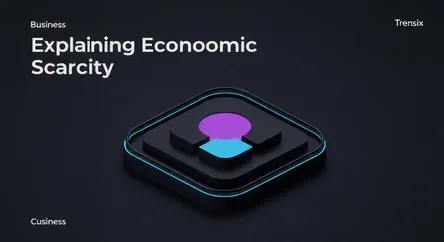Business
Explaining Economic Scarcity

Discover the fundamental economic principle of scarcity, where unlimited wants meet limited resources, and how it shapes all financial decisions.
What is it?
Scarcity is the foundational concept in economics that describes the conflict between humanity's virtually unlimited wants and the world's limited resources. It means there are not enough goods and services to satisfy everyone's desires at a zero price. This basic problem forces individuals, businesses, and governments to make choices about how to allocate their resources. Every resource, from time and money to raw materials like oil and water, is finite. Scarcity is the reason economics exists; it is the study of how people make decisions under these constraints.
Why is it trending?
Global events have brought the concept of scarcity from textbooks into daily headlines. Recent supply chain disruptions, geopolitical conflicts, and inflationary pressures have created tangible shortages and price hikes for consumers and businesses alike. Furthermore, growing awareness of environmental issues like climate change and resource depletion has highlighted the long-term scarcity of essential resources such as clean water, rare earth minerals, and fossil fuels. This makes strategic resource management a critical topic in finance, policy, and corporate strategy.
How does it affect people?
Scarcity fundamentally dictates our economic lives. It forces us to make choices and consider opportunity costs—the value of the next-best alternative we give up. For individuals, it manifests as budgeting and making purchasing decisions based on price and income. For businesses, it influences production costs, pricing strategies, and investment choices. On a societal level, scarcity necessitates systems like markets or government planning to decide what gets produced, how it's produced, and who gets to consume it. It is the underlying reason for prices, competition, and trade.